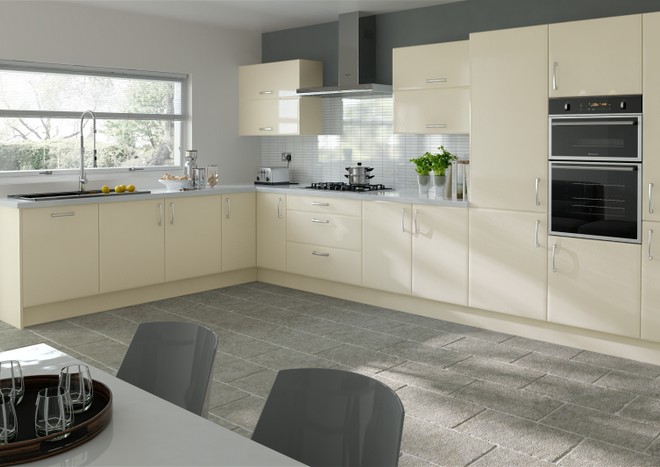It is so easy to be wasteful in an age where food items and their accessories come with multiple layers of bubble wrap, plastic moulds and cardboard boxes. Here, we hope to share some advice to help the whole family operate in a more eco-friendly kitchen as this is the room that has the most potential for energy and food waste as well as excessive use of toxic chemicals that we believe ‘clean’ our surfaces and cookware’s.

Eco-friendly shopping
Prepare and buy your food in bulk. This is great, not only for green reasons but also due to the busy and unpredictable nature of modern life. If you have unexpected guests just use some of your prepared frozen portions of food. Alternatively, if you fancy something different to eat after a long day at work then you have other options that don’t take hours to cook. Use cash and carry’s or farmers markets to buy lots of what you use regularly. The bonus of which is that you will also save money. For that little extra eco- touch, take your own long-lasting bags rather than use the plastic ones in shops that won’t decompose and also can harm wildlife.
Buy local
Also, when shopping for your food, buy from local sources. The fewer the miles are between the farm and table, the more efficient. Consider fruit shipped in from abroad. It may taste lovely, but how much pollution did the planes that flew it here create?
Eco-friendly cookware
Make sure the cookware and utensils you buy are built to last. Go for stainless steel or cast iron pans, as there are claims that non-stick items have potential health hazards. Buy high quality knives you can sharpen by hand. And get rid of any low quality wooden or plastic spoons and invest in some eco friendly utensils. Joseph is a brand that has great products that are both eco-friendly and brilliantly designed.
Gas or electricity?
Another huge consideration is whether to use gas or electric energy. There are arguments for both sources depending on where you live in the world. So weigh up which will suit your family needs more. Gas offers heat on tap and doesn’t waste as much heat as electricity. If you decide on electricity surfaces, ceramic glass is some of the most efficient as they also deliver heat quickly and are also easily cleaned. On the subject of cleaning, try to use eco friendly products that don’t contain toxins. These are produced to smell as though they are cleaning your surfaces but are actually full of chemicals that if come into contact with our food, can make you ill.
Compost
If you have the capacity then introduce a compost heap to your outside space. Or even install a compacter into your kitchen to enable your left over foods to be broken down rather than adding to the tonnes dumped at tipping sites. This is also great as food for growing vegetables or flowers as enriches the soil, an even better reason to have your own veggie patch.
In terms of water wastage in the kitchen, dishwashers are proven to use roughly 37% less water than washing up by hand. If you don’ t have a dishwasher, then having a bowl of soapy water and a bowl of clear water for rinsing is the most efficient method

